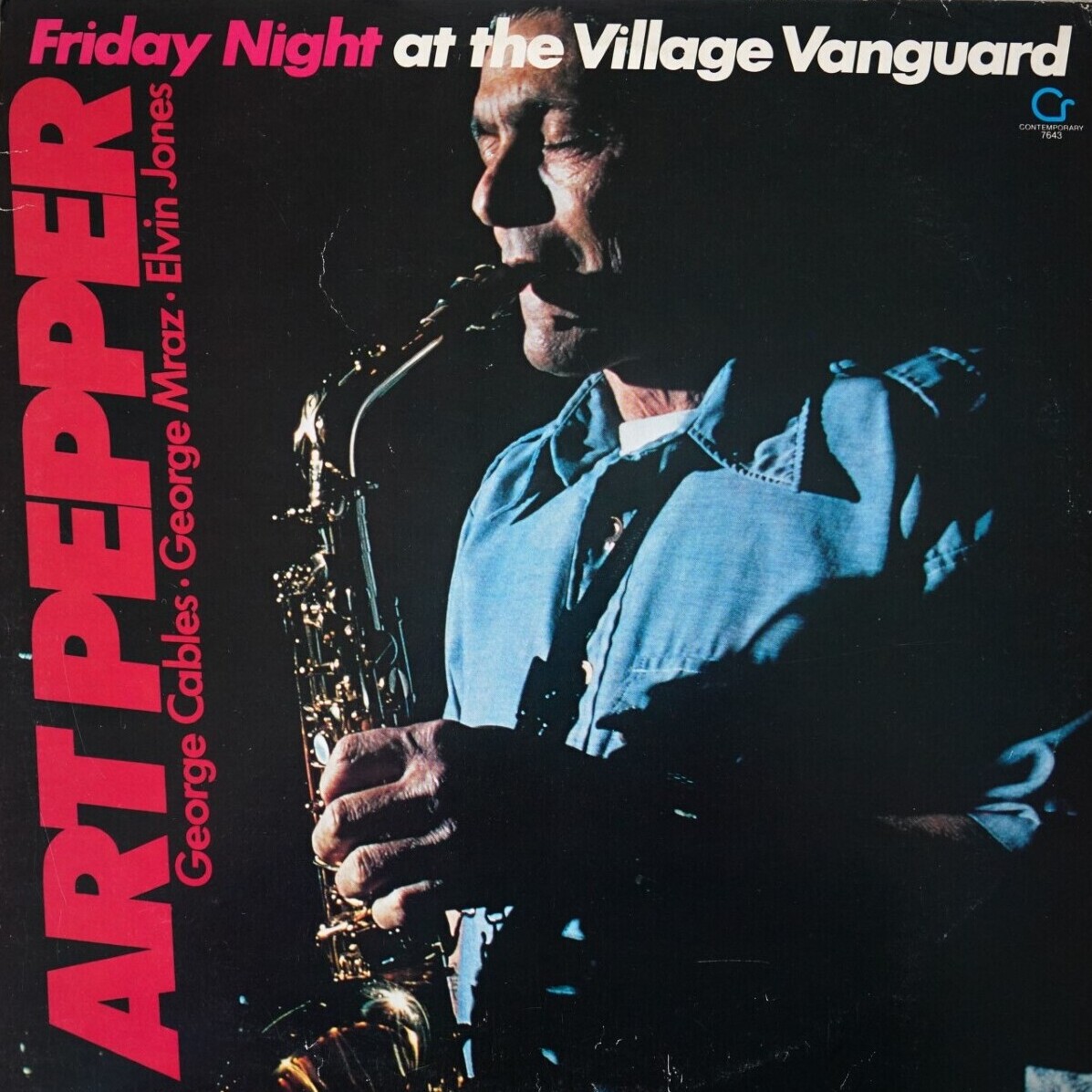Art Pepper: The Later Years
By Dennis Davis

My favorite television shows, which for reasons of availability and prurient interest means murder mysteries, generally open each new episode with the word “previously.” While there are no bodies buried here, previously I have organized this “Building A Jazz Library” series around the group of musicians who performed on Miles Davis’s iconic 1959 album Kind Of Blue. Part One (https://gy8.eu/blog/building-a-jazz-library-part-1/) covered Atlantic Records albums led by John Coltrane; and Part Two (https://gy8.eu/blog/building-a-jazz-library-part-2/0), the Riverside and Verve albums of Bill Evans, leaving Julian “Cannonball” Adderley, Wynton Kelly, Paul Chambers and Jimmy Cobb for later consideration. The sharp-eyed record collector will recognize that I cherry picked the lineup—Coltrane’s and Evans’ catalogs are by far the most extensive and collectable of the lot. The entirety of Kelly, Chambers and Cobbs’ discography as leaders would not fill much space, Adderley’s output was more substantial, but the dross exceeds the gold.
Instead, part three will sidestep the KoB alumni to focus on the late recordings of Art Pepper, one of the greatest alto saxophone players in jazz history. Pepper provides a fascinating juxtaposition with Miles Davis, especially when examining each of these magnificent artists’ response to their shared addiction to heroin. Davis famously locked himself away in a room and claimed to kick the habit through sheer force of will in relatively short order. Although that story changed with each telling, the central fact remains that Davis had extraordinary powers of self-control and concentration. Within a few years Davis recorded Kind of Blue, and his greatest recordings postdate taking the cure. Although the actual battle with heroin addiction took about a year, it pales in comparison to Pepper’s struggle.
Art Pepper was addicted to heroin by the age of twenty, and spent the years between his 30th and 40th birthdays in and out of prison on drug charges. Finally, after the last two of these prison terms (in San Quentin California State Prison), he joined Synanon to break his addiction. The organization had recently been formed by an adherent of Alcoholics Anonymous, although it later morphed into a cult called the Church of Synanon. Its leadership and members were convicted of a wide range of criminal activities arising from their efforts both to raise money for the enterprise and instill obedience among the members. Pepper’s involvement spanned the early, “gentler” days of Synanon. He had hit rock bottom with his addiction and, after being released from prison in 1969, was accepted into the group where he spent the next three years. After leaving Synanon, he continued to struggle throughout his life with alcohol and cocaine abuse, at one point checking into a methadone program. Pepper’s time in Synanon preceded its transition into a cult. He was there in 1969 when George Lucas used Synanon members as extras in THX 1138. Lucas needed hundreds of bald actors, and many Synanon members were required to shave their heads. However, the group used what has been called “attack therapy” and brainwashing and it left its mark on Pepper’s psyche. His autobiography, Straight Life, published in 1979, reveals a man sorely lacking in introspection or compassion. His attitude towards minorities and women would be considered highly questionable in today’s world. Yet despite all this he still managed to produce some of the most beautiful compositions and playing of the mid-century.
Early years…
Pepper came up through the big band system, having played with the Kenton band, and even after touching stardom, sat in on other leader’s big band sessions. Three of the best recorded big band albums of 1959/1960 feature Pepper in the background: Marty Paich’s The Broadway Bit (Warner WS 1296) and I Get A Boot Out Of You (Warner WS 1319); and Henry Mancini’s Combo! (RCA LSP 2258 recorded by Al Schmitt). The Paich originals are sought after and expensive, but a reissue of I Get A Boot, mastered by Steve Hoffman and Kevin Gray, is still available. The Mancini is easy to find and inexpensive.

